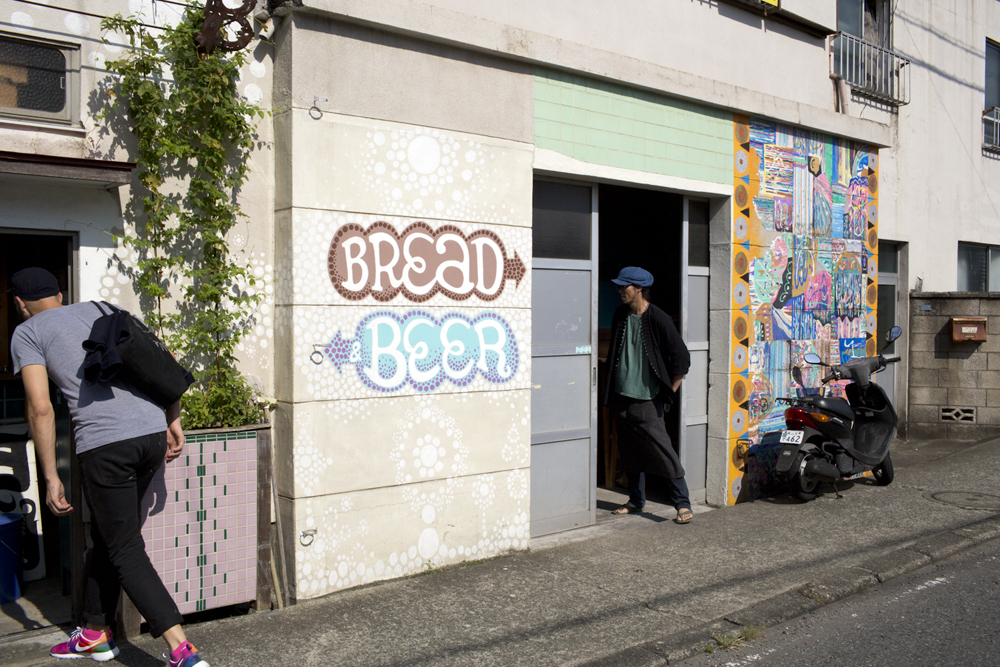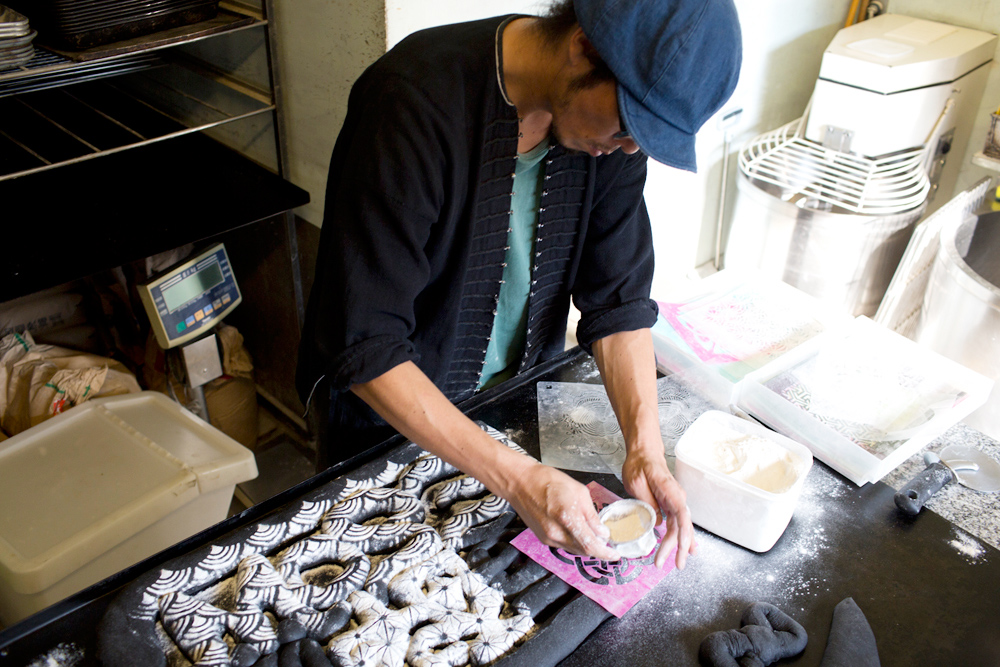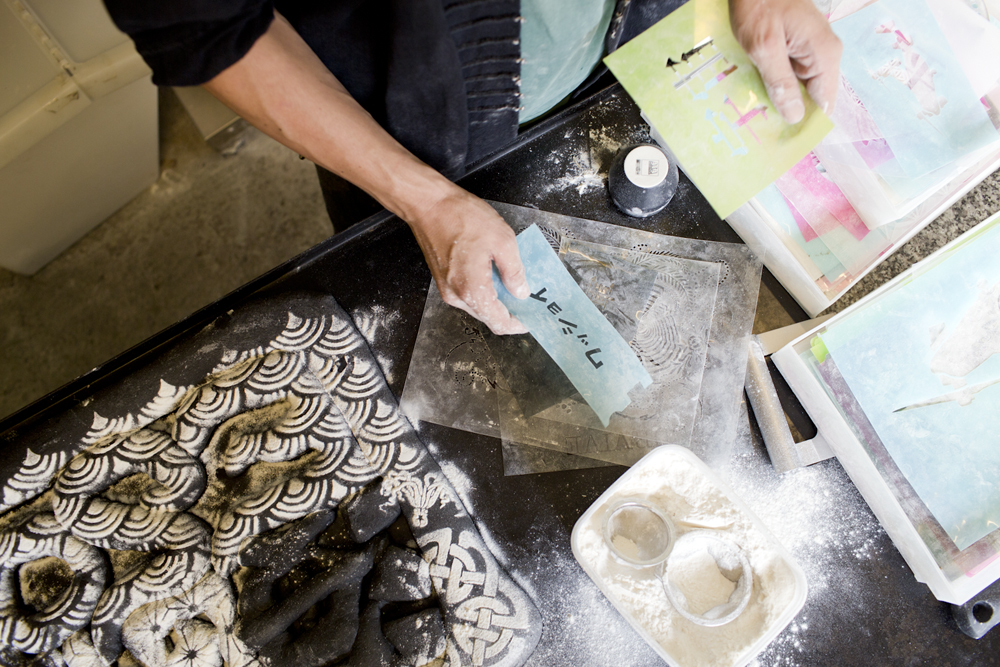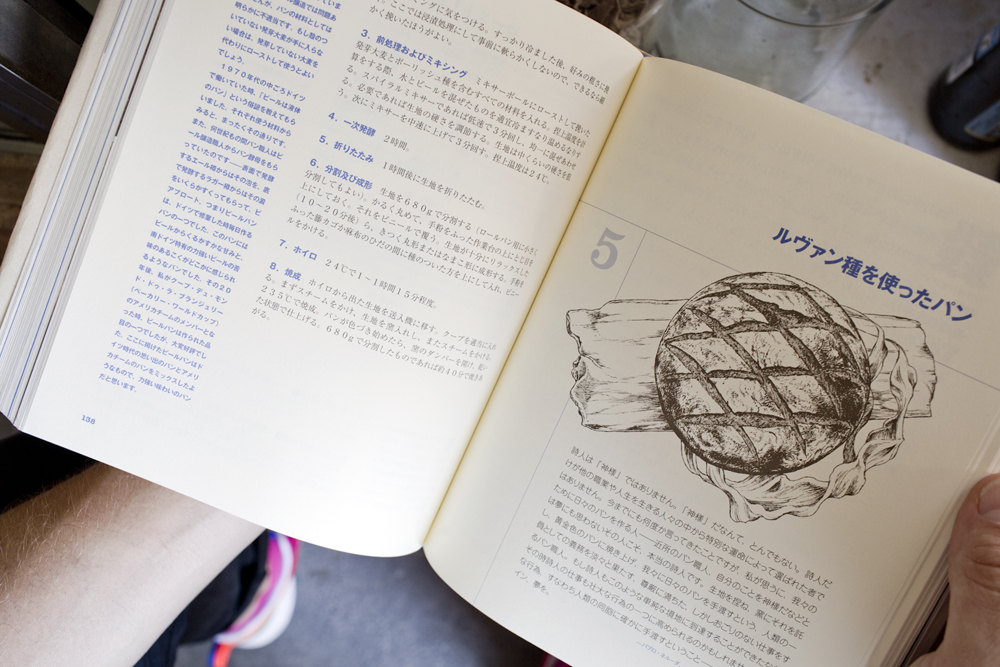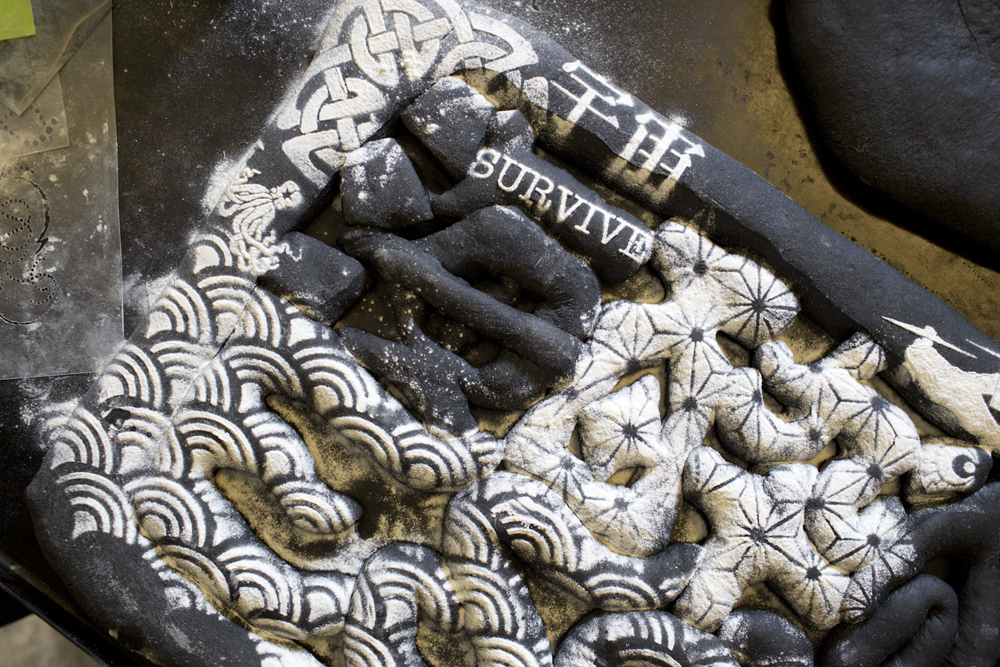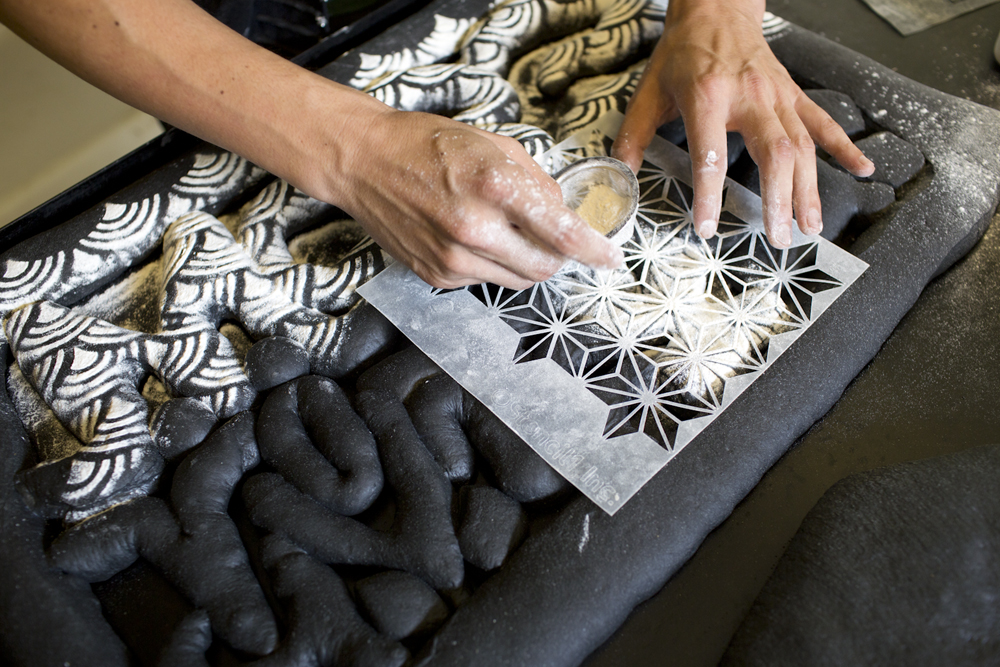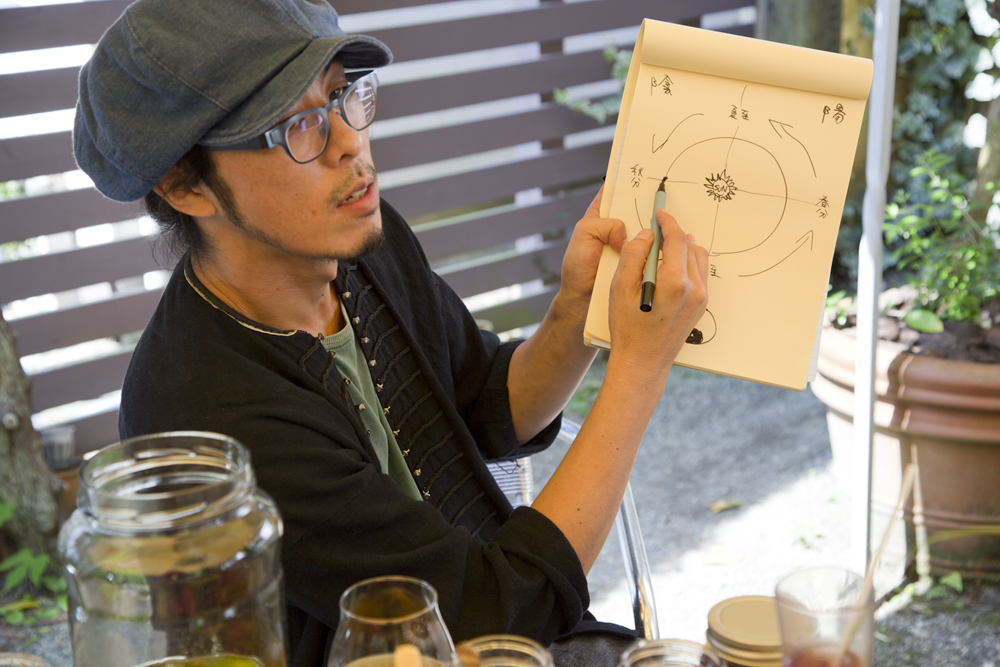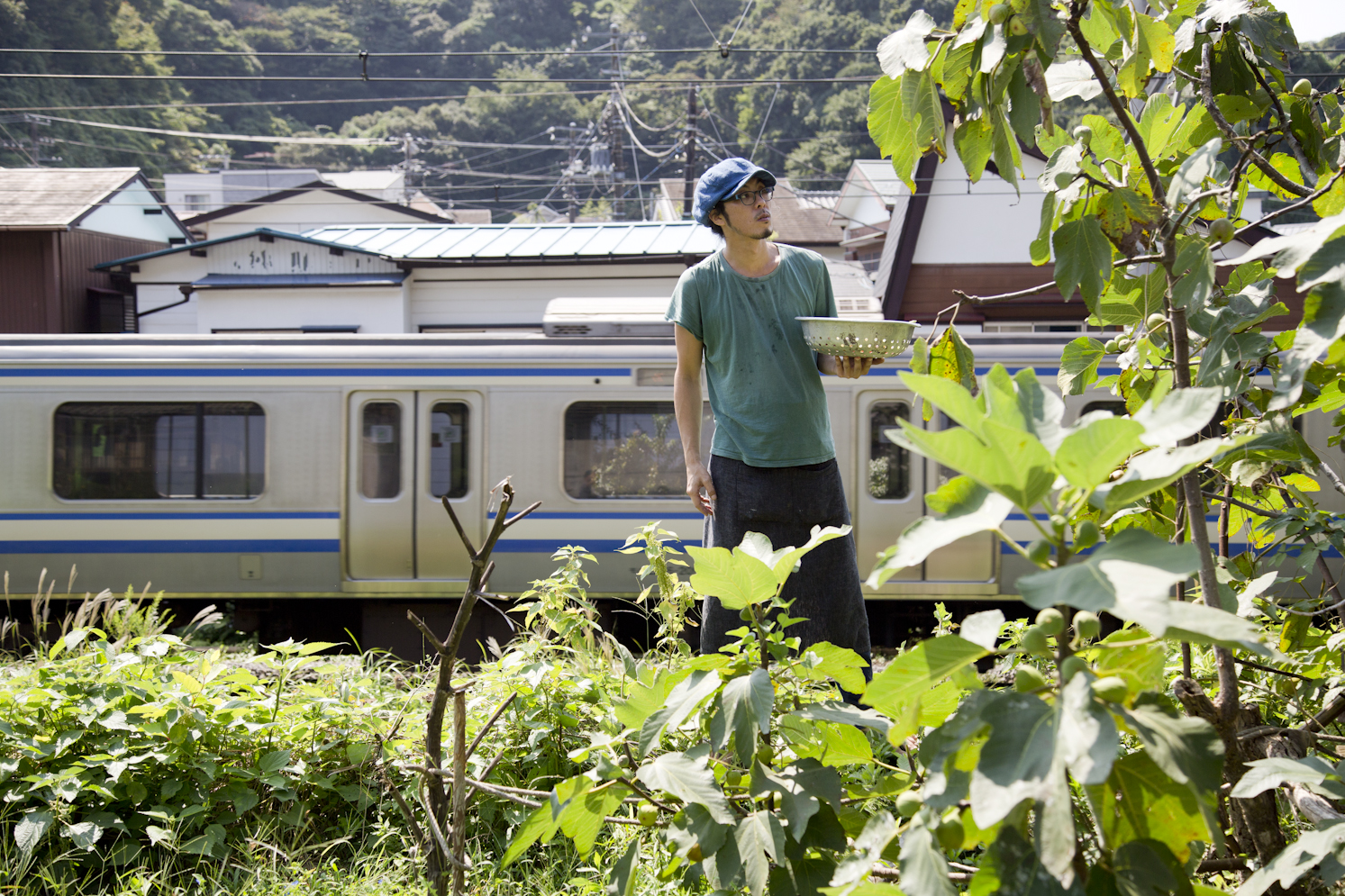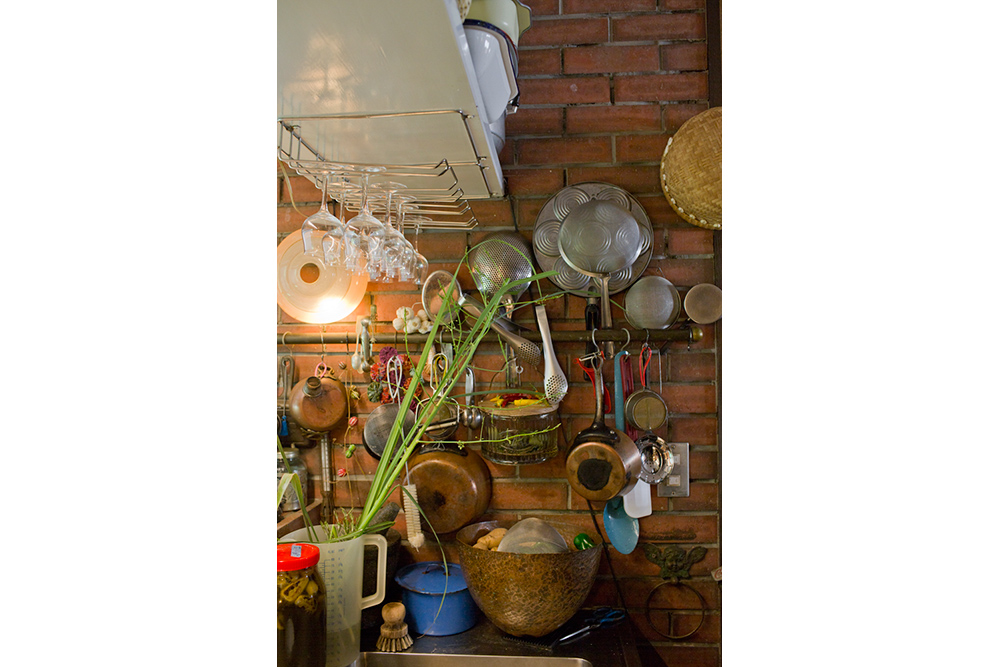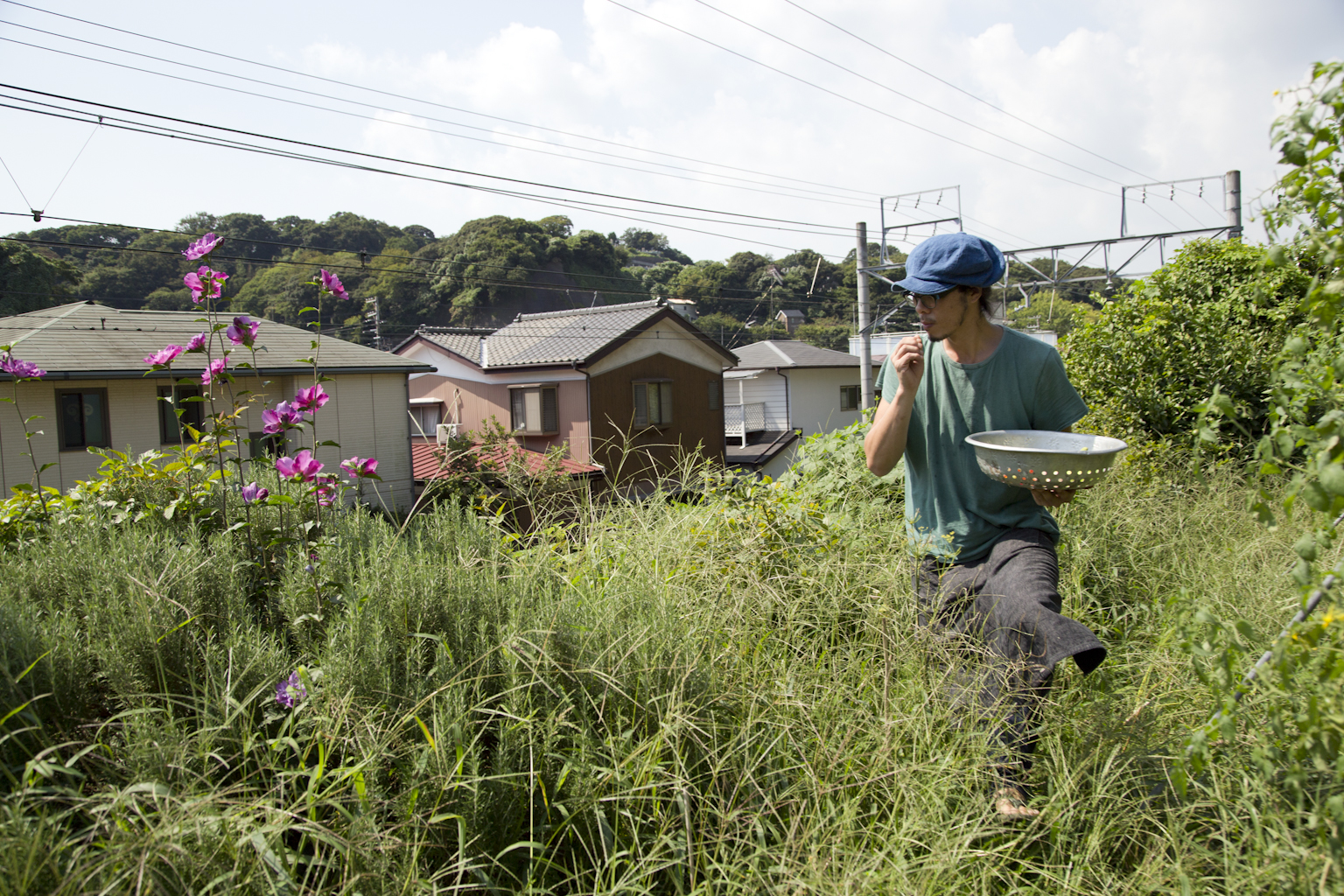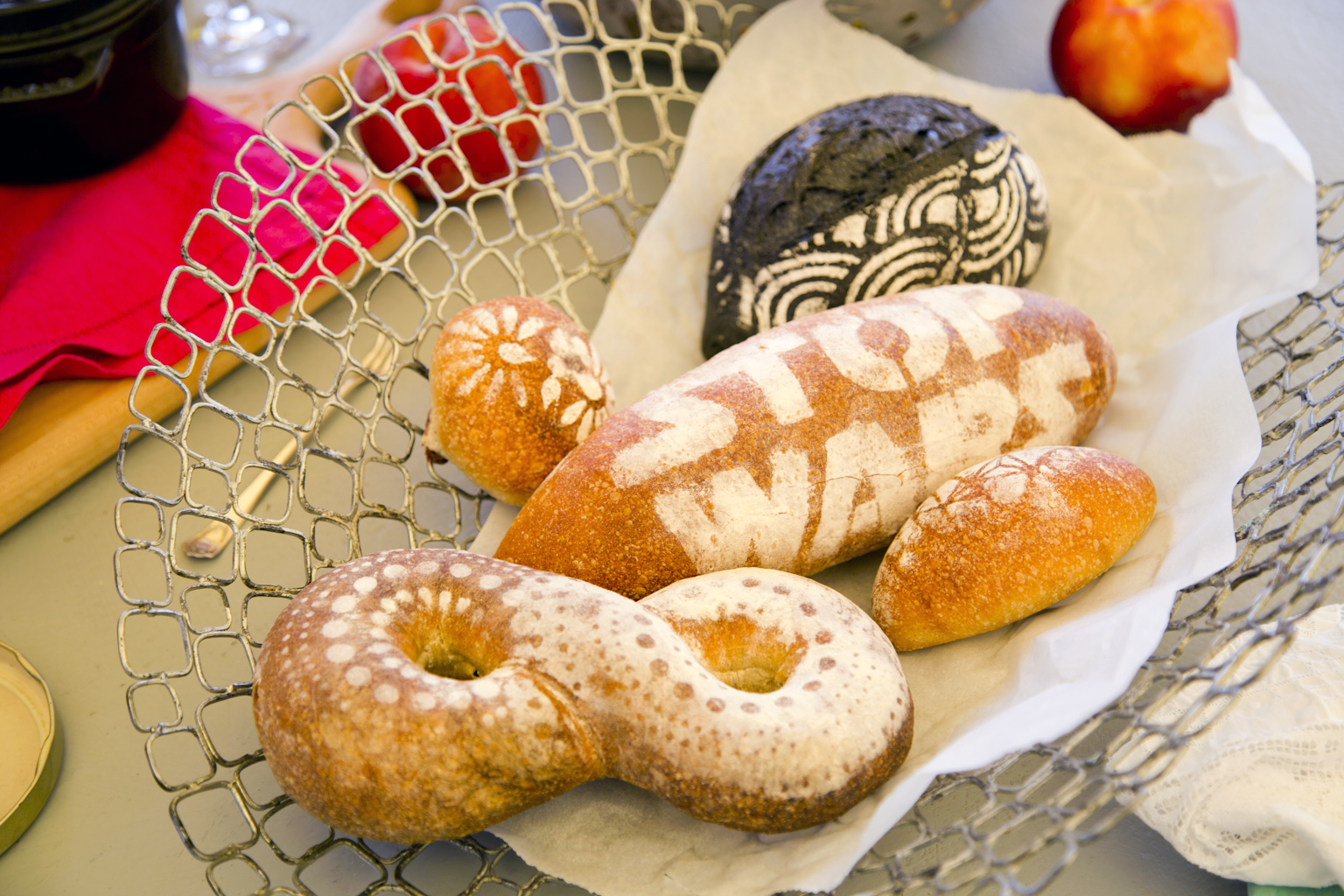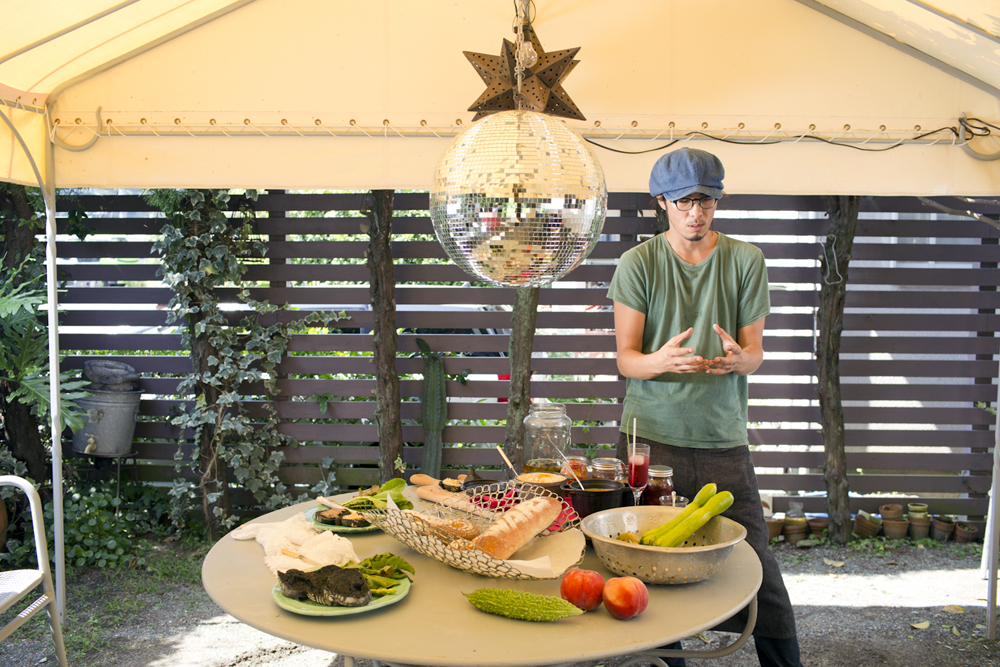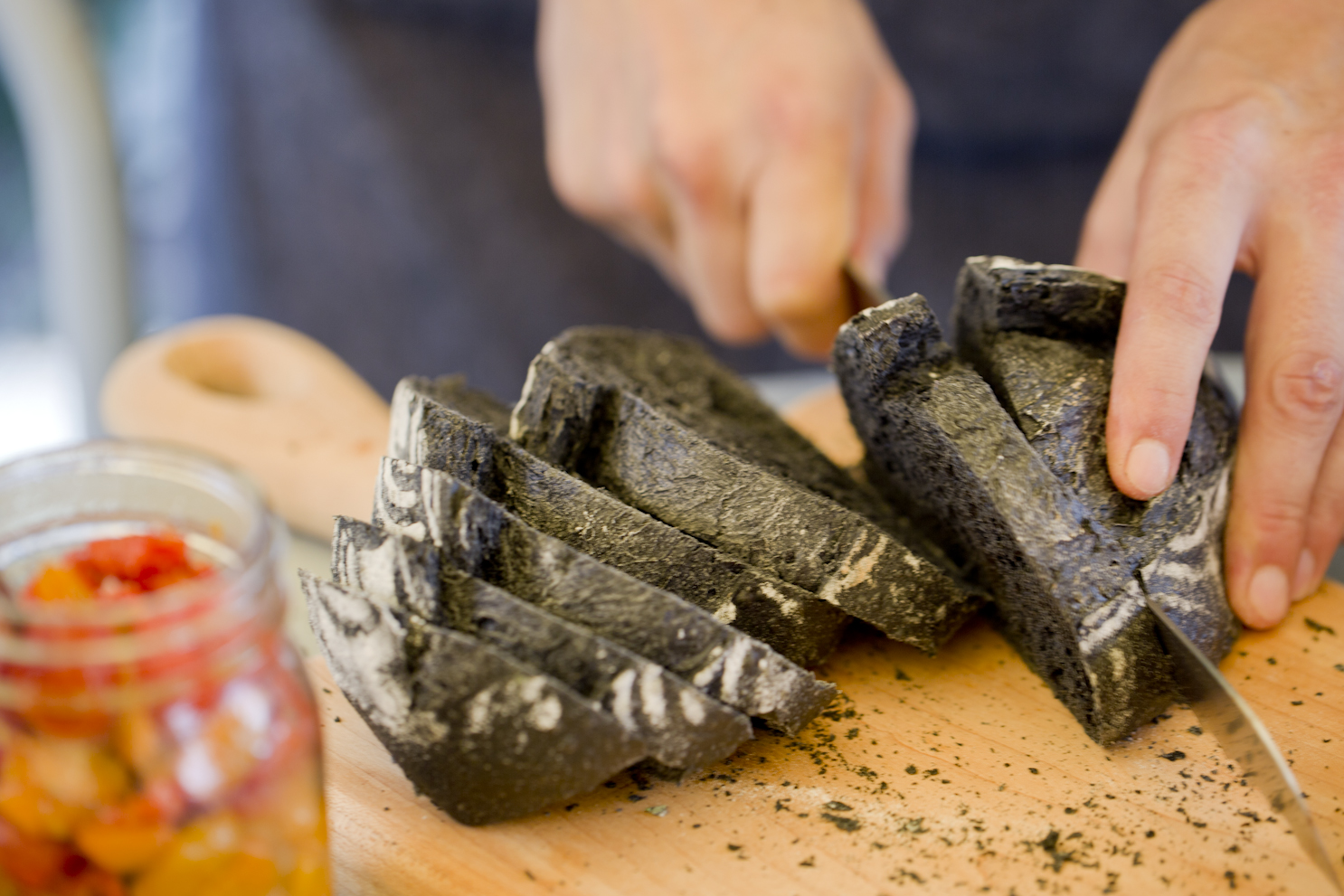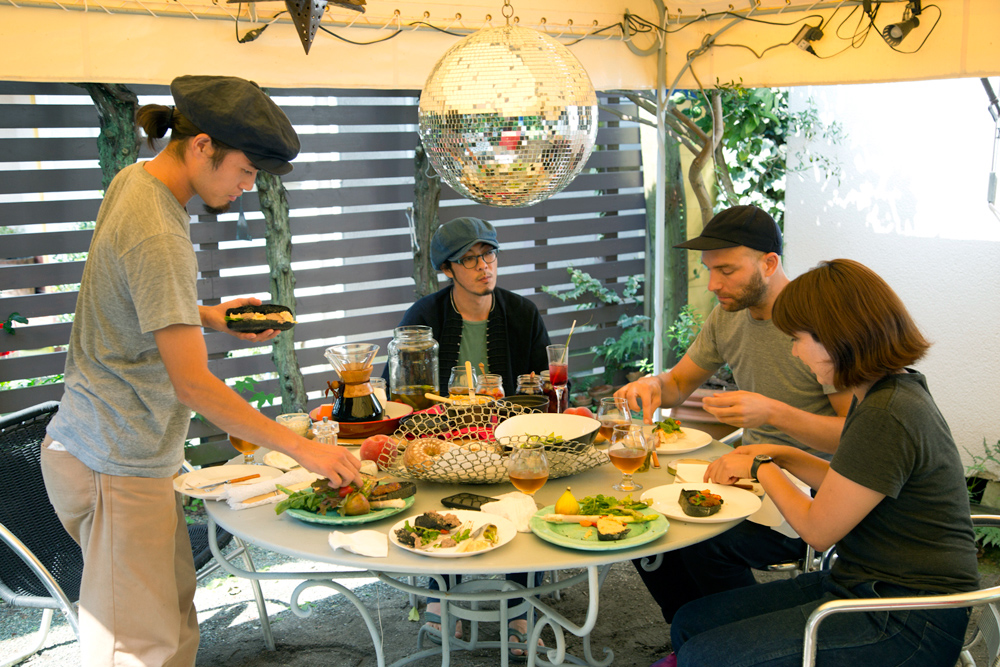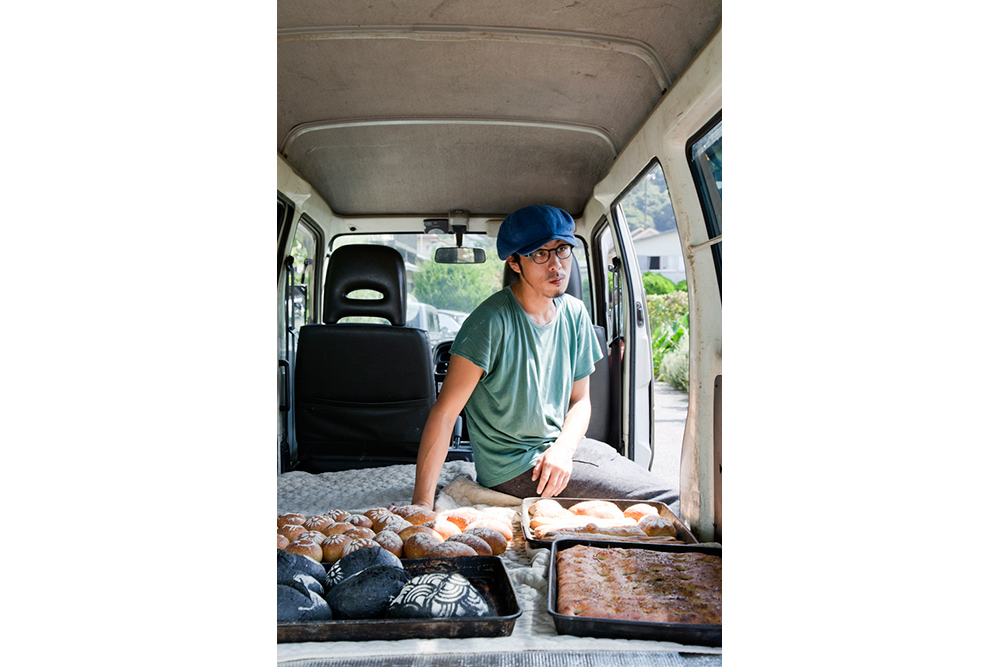Paradise Alley — It’s So Much More Than Bread
INGREDIENTS
- bread
The town of Kamakura is an hour from the heart of Tokyo, but from the moment you step off the train, you know you are worlds away. Surrounded by famous shrines and temples, this seaside town is ch-i-i-i-i-i-ll. We traveled here to meet with Junpei, a baker whose a brick and mortar shop is in Kamakura, but whose reach is vast. He seems to be connected to every person we met in Japan, from the beloved Tokyo restaurant Eatrip, to the Osaka-based noise rock musicians The Boredoms (apparently, Junpei makes a massive bread sculpture for each of their shows that he attends). And his influence flies in the face of international borders; he started a guerilla sourdough culture barter network, which began with a trans-Pacific trade with Josh from the band Animal Collective.
But Junpei has a an unusual approach to baking. His interest in the living yeast cultures began six years ago with the birth of his son. In his new role as a parent, he was paying so much more attention to food and what we put in our bodies, and thus he was naturally drawn to the practice of cultivating and maintaining a living sourdough culture. Then, in 2011, the nuclear disaster happened in Fukushima, compromising the soil, the water and the very essence of the agricultural system. So much of Japanese produce and seafood has historically come from the Fukushima region, and the Japanese people still do not trust that the government has been honest about the lasting effects of the disaster. To this day, many residents of Tokyo buy their produce and even their water online, and markets charge more for produce that can be labeled as having come from the South of the country as opposed to the North.
The fear and anxiety over nuclear impact might be on the top of people’s minds, but according to Junpei, it is not discussed openly enough. Due to its purifying effects, Japanese some people ingest powdered charcoal as a daily supplement, in the hopes that it might combat the effects of radiation, purifying the system from the inside. There’s no scientific proof in this, but there is hope. So, Junpei started adding powdered bamboo charcoal to his bread, a small nudge towards public acknowledgement of the continued effects of the crisis. He then shapes the black dough into curling, complex bas reliefs, with hidden Japanese characters embedded in the design. The last step is a free flowing process of stenciling images and patterns onto the surface, using white wheat flour that contrasts with the slate-black bread. These works can be up to 3′ wide, and the best part is, they really do taste delicious.
Though Junpei insists this is not art, per se, it is his way of expressing himself through his craft, aligning himself with political causes and creating something beautiful on a daily basis.

